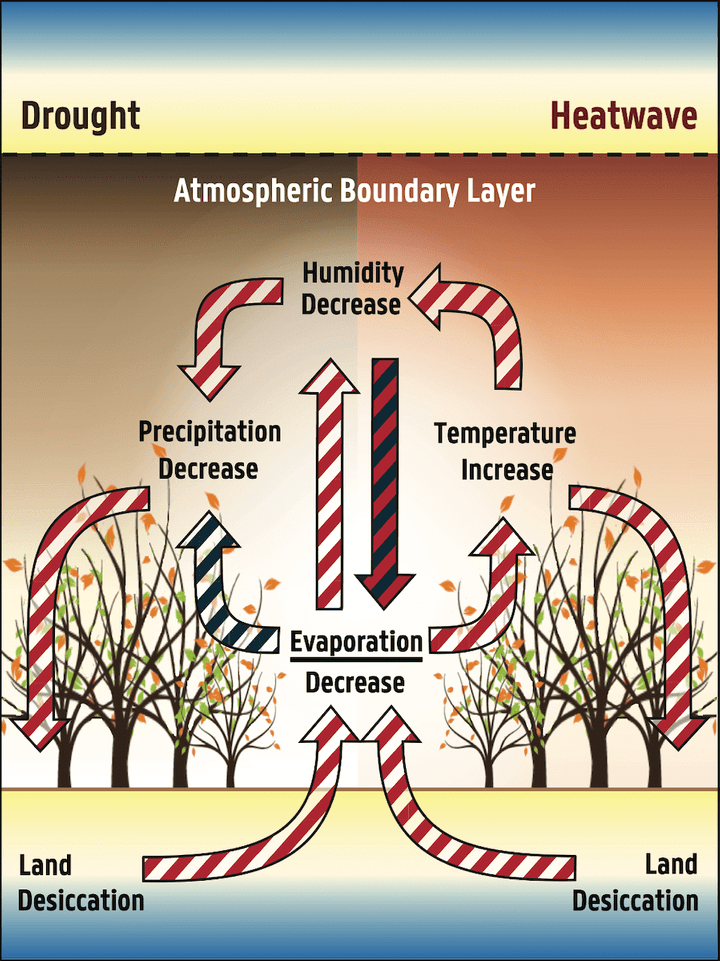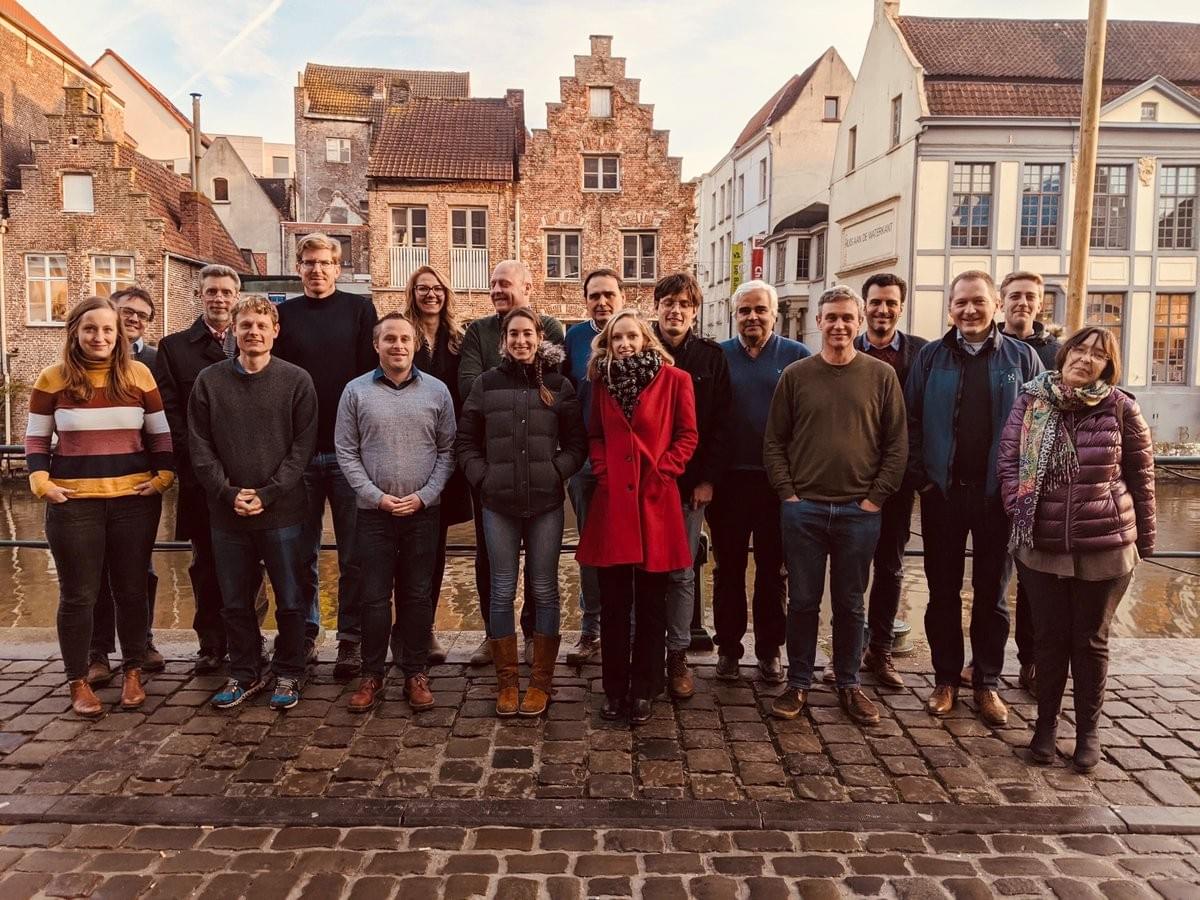

A new ERC project aiming to unravel the global triggers of drought
- Land–atmosphere feedbacks and dry extremesunder changing climate
November 20th–22nd 2019
Ghent | Belgium
Practical Info

Date & Venue
Start: 20 Nov. at 12:00 am | End: 22 Nov. at 12:30 pm
Harmony Hotel Ghent | conference room Portus Gandae.
Kraanlei 37, B-9000 Ghent, Belgium | Google maps
Travel Information
From Zaventem Airport to Gent Sint-Pieters (main station):
- Train: Intercity trains take ~1h. Some go directly and come frequently, others end in Brussels where you need to take a second train. Note: local trains may take much longer; intercity trains are faster. We advise to check the train time tables at the station counters or Google Maps.
From Gent Sint Pieters to the venue (Harmony hotel):
- Tram 1: (red line) 20'. Tram stops right in front of the main station. Direction: Gent Flanders Expo. Step out at Gent Gravensteen or Gent Korenmarkt and walk 5' to the venue. Check route using Google Maps or public transport service.
- Bike: 10'. Bikes can be rented next to the main station.
- On foot: 35'.
Context

In the face of climate change, general dryness and wetness conditions are expected to change in many parts of the world. In particular, long-term droughts and shorter dry spells, have a great and immediate effect on humans and environment, causing significant life and economical losses on annual basis.
Climate models and existing observational records have already reported regional increases in duration and severity of dry events, and some agree on a future exacerbation albeit with large degrees of uncertainty. More devastating impacts on population and environment are therefore expected.
The existing uncertainties surrounding the role of local land–atmosphere feedbacks in the short-term dynamics and trends of dry events hamper the accurate forecasting and projection of these meteorological extremes.
This workshop aims at reconciling ongoing scientific efforts directed to enhance our understanding of land–atmosphere interactions and their effect on dry spells, compound drought–heatwave events, and aridity trends.
A coherent synthesis of existing knowledge from two virtually distinct communities is intended: experts working on land–atmosphere feedbacks and dry events at boundary layer scales, and climate modellers working on the effect of land surface on long-term aridity projections.
Research Questions
Q1 | Dry events: What is the effect of local and remote land–atmosphere feedbacks on the onset, evolution and termination of droughts and dry spells?
Current understanding of the physical factors influencing development of abnormally dry conditions suggests the key role of large-scale circulation. However, an increasing number of studies show that land surface state can play an important role, both locally and remotely. However, quantitative evidence on the relevance of land–atmosphere feedbacks on precipitation changes during droughts and dry spells is still lacking.
Q2 | Drying trends: How does the contribution of land–atmosphere feedbacks vary as climate changes and to what degree does it explain drying trends?
Simulations with climate models suggest a key role of soil moisture trends in future climate conditions. However, the exact mechanisms underlying this relationship remain unclear. The effect on precipitation triggering via land feedbacks on the boundary layer evolution is suggested as a potential reason. Fostering collaboration between the climate modelling community and the hydrometeorology community –working at boundary layer and sub-daily scales – can enhance our understanding of these long-term changes.
Discussion Topics
- The role of land coupling on the trends in drought and aridity.
- The role of soil moisture in drought–heatwave occurrence.
- The role of vegetation during droughts and heatwaves.
Agenda
Download the full agenda here.
Participants
Alexis Berg (Harvard University) | Niklas Boers (Potsdam Institute for Climate Impact Research) | Dim Coumou (Vrije University of Amsterdam) | Simon Dadson (Oxford University) | Paul Dirmeyer (George Mason University) | Pierre Gentine (Columbia University New York) | Julia Green (LSCE) | Françoise Guichard (CNRM, Meteo France) | Jessica Keune (Ghent University) | Diego Miralles (Ghent University) | Rene Orth (MPI Jena) | Irina Petrova (Ghent University) | Joshua Roundy (University of Kansas) | Dominik Schumacher (Ghent University) | Sonia Seneviratne (ETH Zurich) | Femke Smessaert (Ghent University) | Chris Taylor (Centre for Ecology and Hydrology) | Ryan Teuling (Wageningen University and Research) | Wim Thiery (Vrije University of Brussels) | Ricardo Trigo (University of Lisbon) | Sergio Vicente Serrano (CSIC) | Hendrik Wouters (VITO / Ghent University).
References
Non-exhaustive list of inspiring literature can be found here.
Outcomes

General knowledge
- The role of land feedbacks depends on drought type. E.g., stomatal response to VPD: more available water but larger ecosystem stress.
- The role land feedbacks may differ for drought event vs. aridity trends. But understanding event-scale can improve model projections.
- The role of precipitation in drought trends is indisputable. But large uncertainties on the demand side, which is projected to vary more.
- Drivers may be strongly region-dependent. Difficulty to generalise results.
General recommendations
- Certain indices are better for certain drought types and applications. Indices using E for water availability, Ep for ecosystem stress.
- Need to consider VPD and [CO2] effects on plant response in trend assessments. Also when computing drought index projections.
- CMIP archives should provide aerodynamic and surface resistances. That would favour benchmarking and help attribution.
- Need to consider drought impacts (streamflow, forest mortality, fires). These impacts also depend on (and affect) land feedbacks.
Requirements: process-understanding
- Main focus should be on understanding aerodynamic and surface resistances. And factors affecting those (e.g., ground water access, root depth, xylem conductivity).
- Importance of disentangling the role of VPD and soil moisture in transpiration. Particularly given the contrasting projections in both.
- New observations of fluxes and states are needed. But also the innovative use of existing ones (SIF, VOD, etc.).
- Value of observation-based coupling metrics that display physical processes. For process-understanding and model benchmarking.
- Differential land role in the onset versus the demise of events. Considering also a seasonal perspective on soil dry-out and biosphere growth.
- Focus should expand from coupling at local scales. And embrace downwind effects and meso-scale and synoptic circulation impacts.
Requirements: model benchmarking and representation
- Need for correct physics and chemistry (right results for right reasons). Important for projections in non-stationary climate conditions.
- Need to evaluate model inter-variable sensitivities and links. But be able to go back to specific parameters and formulations.
- Need to incorporate the effects of management and adaptation. Ecosystem adaptation, but also agricultural practices, land management, etc.
© 2022







